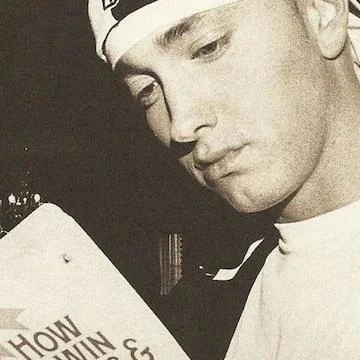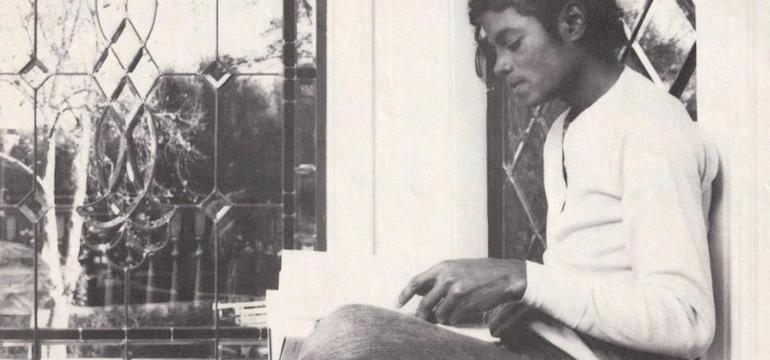Before The Beatles were inspiring writers — Haruki Murakami, Nick Hornby and, hell, even Kurt Vonnegut, to name a few — they were borrowing their fair share from literature, including the works of Lewis Carroll, James Joyce and Thomas Dekker.
The 1967 hit “I am the Walrus” is known for being influenced by Lewis Carroll's Through the Looking-Glass (and healthy amounts of LSD). In the spirit of Carroll’s poem “Jabberwocky,” the song is infused with nonsensical, onomonopiac language — but the chant “goo goo g'joob” actually comes from James Joyce’s Finnegans Wake. (Joyce used a slightly different sound: “googoo goosth.”) Leave it to John Lennon to mix his favorite childhood book with one of the most dense, experimental pieces of Irish literature.
The title of “I am the Walrus” also nods emphatically to Carroll’s poem “The Walrus and the Carpenter” — specifically to the walrus character, who expresses his remorse after devouring helpless oysters by crying at the poem’s end. Lennon confessed in an interview with Playboy that he felt they should have instead sided with the carpenter after learning of the possible political connotations of the poem (the walrus could represent unrepentant capitalists replete with crocodile tears). He admitted, though, that “I am the carpenter” just wouldn’t have had the same ring.
“I am the Walrus” incorporated literature on a subliminal level, as well. During the recording of their 1967 version of the song, The Beatles may have intentionally included two snippets from a static radio broadcast of William Shakespeare’s King Lear (Edgar leading his blinded father, then killing Oswald) at the end of their performance. I like to think that The Beatles planned all of this meticulously, but who knows, it may have coincidentally been picked up.
There were other literary sources The Beatles borrowed from more directly. Their song “Golden Slumbers” took quite a bit from Thomas Dekker's lullaby of the same name. “Tomorrow Never Knows” also practically copies The Psychedelic Experience: A Manual Based on the Tibetan Book of the Dead for its opening lines, which are only a few words off from those of authors Timothy Leary, Ralph Metzner and Richard Alpert: “Whenever in doubt, turn off your mind, relax, float downstream.”
Most of the references The Beatles made to literature in their music were to the books that stuck with them from childhood or had recent on their mind. It had little to do with reference snobbery and much more to do with the actual texts that had made John, Paul, George and Ringo the songwriters they became.
It’s possible to say the same of the literary greats who have made references to The Beatles in their books: They’re not showing off their musical chops, but paying tribute to the a band that influenced their art. Half a century on, The Beatles retain a tremendous influence over literature. Writers like S. E. Hinton (in The Outsiders) included references to The Beatles’ as a sort of timestamp to mark an era, while other authors have given the band tremendous praise in their fiction, as Kurt Vonnegut does in Timequake:
I say in speeches that a plausible mission of artists is to make people appreciate being alive at least a little bit. I am then asked if I know of any artists who pulled that off. I reply, “The Beatles did.”
In literature, it often seems like The Beatles can do no wrong. Their music does what Vonnegut describes: It brings people back to life. Whether it’s the comfort of nostalgia or the ease of their melodies, characters in literature often love The Beatles. Even the fictional record snob Rob Fleming in Nick Hornby’s novel High Fidelity conveys the band’s healing powers after a brutal long-term break-up:
Me, I’ll be playing the Beatles when I get home. Abbey Road, probably, although I’ll programme the CD to skip out ‘Something.’ The Beatles were bubblegum cards and Help at the Saturday morning cinema and toy plastic guitars and singing ‘Yellow Submarine’ at the top of my voice in the back row of the coach on school trips. They belong to me, not to me and Laura, or me and Charlie, or me and Alison Ashworth, and though they’ll make me feel something, they won’t make me feel anything bad.
Other fictional characters have used The Beatles as a way to express their own sentiments, to fill in feelings that they can’t express themselves. Charlie in The Perks of Being a Wallflower desperately loves the song “Something,” to the point that it defines his concept of what it means to be in love:
It was an old 45 record that had the Beatles’ song “Something.” I used to listen to it all the time when I was little and thinking about grown-up things. I would go to my bedroom window and stare at my reflection in the glass and the trees behind it and just listen to the song for hours. I decided then that when I met someone I thought was as beautiful as the song, I should give it to that person. And I didn’t mean beautiful on the outside. I meant beautiful in all ways.
But the writer to take the crown for the most Beatles references in their work must be Haruki Murakami. Not only has he named one of his most well-known novels after the Rubber Soul track “Norwegian Wood,” he’s mentioned the band in passing in many of his other works and even named one of his short stories after another track, “Yesterday.”
In Norwegian Wood, The Beatles come attached to the narrator Toru Watanabe’s issues with nostalgia and loss. At one point in the novel, a friend of Toru’s love interest plays the guitar and sings along to several Beatles songs, telling him: “Those guys sure knew something about sadness of life, and gentleness.”
And Murakami’s right — except that The Beatles have the power to be gentle but mighty, silly yet wise. I remember singing along with them at night while doing my homework and bowing my head to “Lucy in the Sky with Diamonds” at a school-wide memorial after a girl two grades younger than me was hit by a car. I’ve yelled songs drunk with my friends, and I’ve sobbed through the lyrics of “I’m Looking Through You.”
In Jonathan Safran Foer’s novel Extremely Loud and Incredibly Close, “I am the Walrus” is the tune the protagonist Oskar Schell imagines his father whistling before he dies in the World Trade Center. At one point in the book, Oskar worries that he can’t remember more about his father from that morning — how high his shirt was buttoned up or how exactly he was holding his copy of The New York Times — but the whistle of his father’s favorite Beatles’ melody sticks out. It is infectious; it fills the reader with its melody. The key to empathy right there in the first few lyrics: “I am he as you are he as you are me and we are all together.”
At the end of Foer’s novel, you want to hear Oskar’s father whistle “I am the Walrus” backwards. That is the unyielding literary power of The Beatles: They connect us.
Freddie Moore is a Brooklyn-based writer. Her full name is Winifred, and her writing has appeared in The Paris Review Daily and The Huffington Post. As a former cheesemonger, she’s a big-time foodie who knows her cheese. Follow her on Twitter: @moorefreddie
(Image Credits, from top: Flickr, End of the Game, Macmillan Dictionary Blog, ABS CBN, Fanpop)
KEEP READING: More on Music

![The Rip Van Winkle of Punk [NSFW]](https://images.squarespace-cdn.com/content/v1/507dba43c4aabcfd2216a447/1404137063331-A07C54MCRBO7F7AD1CC5/spike10.jpg)





 A Black Balloon Publication ©
A Black Balloon Publication ©